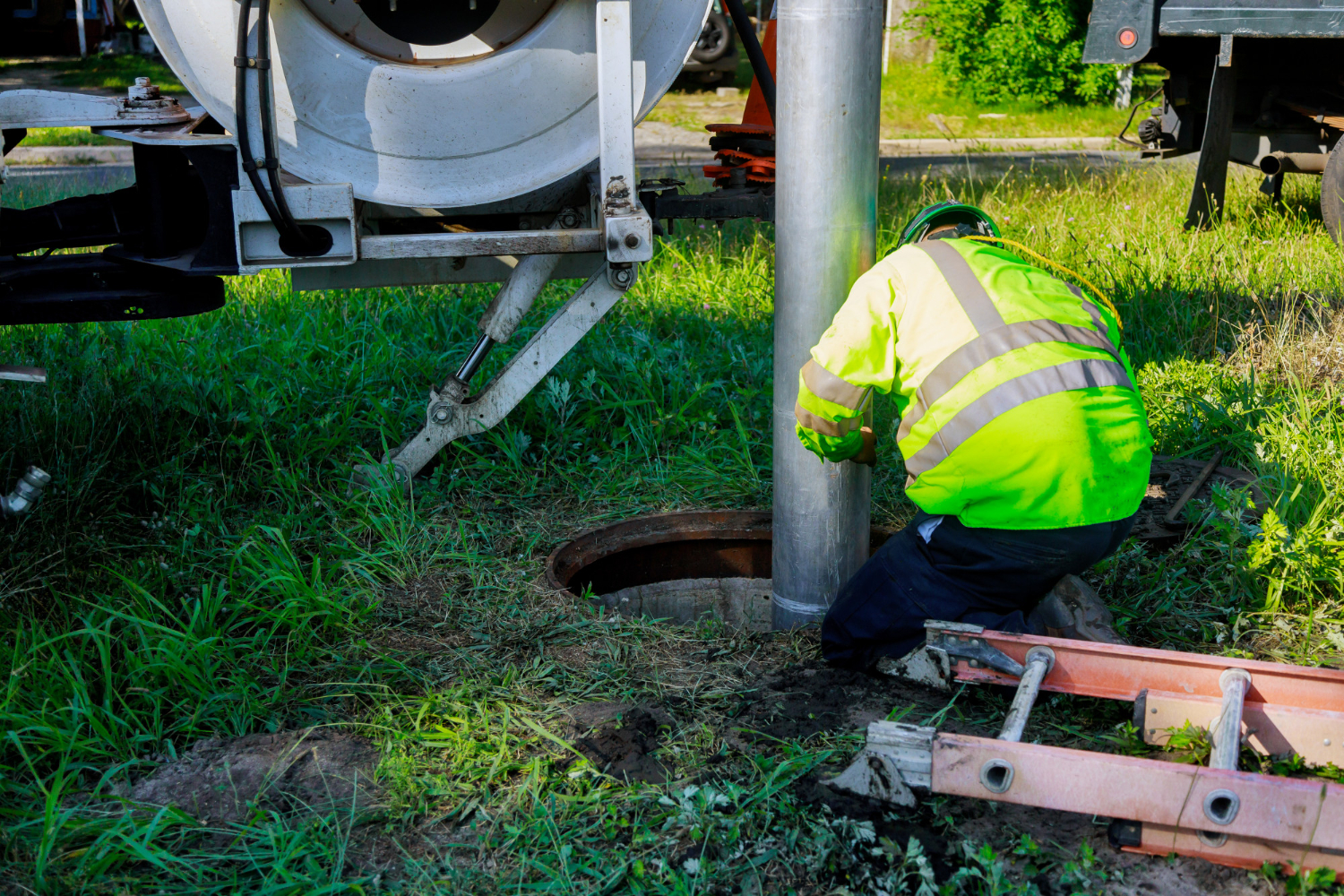WE NOT ONLY PUMP YOUR TANK - WE CLEAN IT! Up to 36 Months Financing Available
Call Septic Blue Now 813-355-9188
It's Easier Schedule Online
WE NOT ONLY PUMP YOUR TANK - WE CLEAN IT! Up to 36 Months Financing Available
Call Septic Blue Now 813-355-9188
It's Easier Schedule Online

The health of your septic system depends significantly on what you put down the drain. Think before you flush! Septic systems are designed to handle human waste and toilet paper, but anything beyond that can cause major issues. Septic Blue of Tampa explores what shouldn't go down the toilet and how it affects your septic system. Regular septic pumping and cleaning keep everything running smoothly.
A septic system works by breaking down waste in a tank before it flows into a drain field where it is filtered and naturally absorbed. The bacteria in the tank do most of the work by digesting solid waste. However, when non-biodegradable or harmful items are flushed, it disrupts this delicate process and can cause blockages, backups, and even system failure.
Regular septic service is essential to ensure your system operates correctly. Over time, solid waste and sludge accumulate in the tank, necessitating septic pumping in Tampa, FL to remove them. But the best way to protect your septic system starts with knowing what not to flush.
While many wipes claim to be flushable, they don't break down as easily as toilet paper. Even those labeled as "flushable" can cause major clogs in your septic system. These wipes do not dissolve like toilet paper and can get stuck in pipes or cause a blockage in the tank. Always dispose of wipes in the trash.
Tampons, pads, and other feminine hygiene products should never be flushed down the toilet. They are made from materials that do not break down, and can quickly create a backup in your septic system. These items can clog pipes and even damage the tank, leading to costly repairs. It's always best to dispose of them properly.
When you pour grease or oil down the drain, it can coat the inside of your septic tank and pipes, leading to blockages and even damage. Over time, grease solidifies and can cause severe clogs. Instead of pouring oils and grease down the sink or toilet, collect them in a container and dispose of them properly in the trash or recycle them.
If you own a rental property that relies on a…
Read More+Do you have a septic system in your backyard? Are…
Read More+A lovely lush lawn is a beautiful sight for any…
Read More+Both dental floss and hair can easily become tangled in your septic system's pipes, leading to blockages. These items don’t break down in water and can accumulate in your septic tank. Hair is especially troublesome because it can clump together, causing serious issues in the drain field. Always dispose of dental floss and hair in the designated trash receptacle.
Cotton balls and cotton swabs are common bathroom items that people often flush, but they do not decompose easily. These items can cause backups in your septic system and lead to clogs. Always throw them in the trash instead of flushing them down the toilet.
Paper towels are thicker than regular toilet paper and are designed to absorb liquids, which makes them much harder for a septic system to process. When you flush paper towels, they can quickly clog pipes and contribute to the buildup of sludge in the septic tank. Dispose of them in the trash, not the toilet.
Harsh chemicals and household cleaners can disrupt the bacterial balance in your septic system. These chemicals may kill the good bacteria in the tank that are responsible for breaking down waste. It’s essential to dispose of chemicals, paints, and other cleaning agents under local regulations, never by flushing them.
Flushing medications can be harmful to the environment and your septic system. Many medications do not break down and can contaminate groundwater. Instead of flushing them, look for local drug take-back programs or dispose of them following your municipality's guidelines.
To keep your septic system in top condition, regular septic pumping and septic cleaning in Tampa, FL are essential. These services help prevent clogs, backups, and other costly issues that arise from a system that is not properly maintained. A reliable septic company can inspect your system and recommend the best course of action to ensure its long-term health and longevity.
Even if you avoid flushing the wrong items, it’s still important to have your septic system cleaned and pumped every 3-5 years. Over time, waste builds up, and the bacteria in the tank can only do so much to break it down. By scheduling regular septic service, you can ensure that your system remains functional and avoid costly repairs in the future.
If you’re due for septic pumping or septic cleaning, don’t wait until you experience problems. Early maintenance can save you from headaches and expensive repairs down the road. Contact a trusted septic company today to schedule your service and ensure your septic system remains in top shape for years to come.
In addition to maintenance, always remember: what you flush matters. By being mindful of the items you flush, you can help prevent clogs, backups, and system failures, ensuring that your septic system functions properly for an extended period. Keep these tips in mind, and your septic system will thank you!